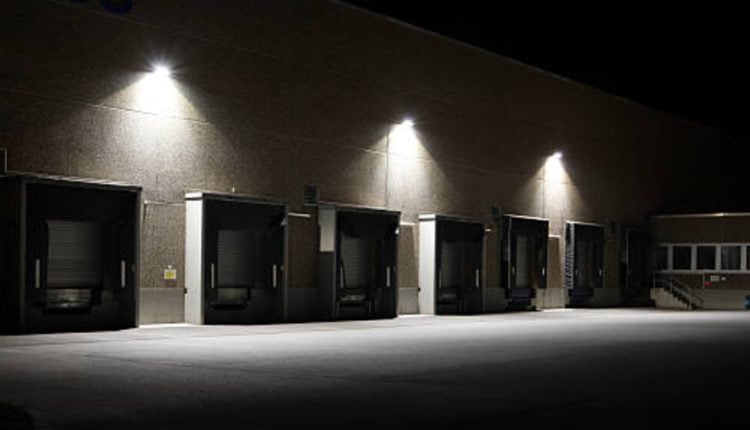Facade lighting helps a building stand out at night and creates an inviting ambiance for visitors or passersby. Furthermore, facade lighting increases the utility of structures by assisting trespassers in to see them at night. The actual Interesting Info about outdoor facade lighting.
However, facade lights must adhere to neighborhood regulations to avoid legal issues with nearby residents.
Aesthetics
Facade lighting goes beyond mere utilitarianism – it can also improve the aesthetics of a building. A well-lit facade will appeal more to passersby, creating an engaging experience as they stroll by. Furthermore, numerous techniques may be utilized to achieve an eye-catching appearance.
Some individuals prefer using silhouetting techniques to bring attention to a building’s facade; up-lighting creates a soft glow on columns and pillars; color temperature is also crucial – warm hues help accentuate building structures, while more excellent colors focus on their textures and details.
Integrating a design theme or dynamic display is another popular method of making facade lights more eye-catching. By including LED controls and dimming options, designers can adjust light levels according to events or occasions – this ensures that buildings always reflect their function and energy efficiency goals.
An eye-catching lighting design requires careful planning and attention to detail, particularly for complex architectural structures. Lighting professionals must evaluate significant viewpoints of a structure’s architecture and its overall visual impact before designing an effective plan for illumination. Testing should occur on-site and off-site to verify its efficacy in real-life conditions; regular inspections can detect issues like water infiltration or misalignment, which might hinder performance.
Safety
Facade lighting can serve two functions – aesthetic and security. A well-lit facade deters crime while making people feel safer when walking past it at night, so some cities encourage installing facade lighting on historic structures and landmarks.
Facade lights should always be considered when designing and installing a building. Being exposed to environmental conditions like rain and sunlight must be constructed to withstand them effectively and be easy to access for maintenance so replacement bulbs can be changed when necessary.
Your building requires a lighting system tailored specifically for it; this will help avoid creating an uncomfortable glare that causes headaches and exhaustion for passersby. Furthermore, selecting an ideal color temperature makes an optimal atmosphere – warmer colors work best in commercial areas, while cooler hues may work better for residential spaces.
Branding should also be taken into consideration when designing your facade light. This is particularly relevant to retail buildings that want to highlight their brand name or logo; for instance, Atlantic City’s Hardrock Guitar and Facade features over 40,000 addressable LEDs that showcase its brand name’s energy, style, and spirit.
Sustainability
Facade lighting can transform a building or other structure to make it more visually appealing at night, drawing the eye toward its most important features and architectural elements. Furthermore, facade lighting should also help enhance security and safety measures within it – choosing an eco-friendly design will reduce energy costs while helping the environment.
Each type of facade light offers different advantages. Some models are simpler to maintain, while others require more time-intensive upkeep; some even allow you to customize their hue! Choosing the appropriate hue temperature is essential when lighting facades – warm hues help create a more natural appearance, while cool ones can produce dramatic effects.
Location is another crucial element when choosing facade lighting. It should not interfere with its surroundings and should be visible from afar to be effective. Furthermore, too bright illumination could prevent people from seeing what’s around them clearly and complying with local rules and regulations.
Lighting fixtures are essential when it comes to creating effective facade lighting schemes. There are a range of choices available, such as recessed, washing, accentuating, and grazing lights; each type offers distinct advantages, but what matters most is how well they complement the aesthetics and functionality of buildings.
Energy efficiency
Facade lights effectively draw passersby’s attention and highlight your building, but they also consume considerable energy. Therefore, when choosing facade lighting options, they must use sustainable solutions that reduce energy consumption while mitigating environmental impact. LEDs make an excellent sustainable solution, illuminating spaces without much power while lasting longer than halogen or incandescent lamps.
Various forms of facade lighting are available today, and each has its own advantages and disadvantages. Washing lights work great on flat facades, while wall grazing emphasizes texture in walls and architectural features. Local illumination offers another distinct approach by lighting specific areas like pillars or building plates with spotlights; you could combine these techniques for maximum effect.
Consideration should also be given to the color temperature and brightness level of facade lights, with cool hues being most suitable for public settings, while warmer shades work best in residential environments. Brighter lights tend to produce more glares, which may cause discomfort among pedestrians; however, anti-glare options exist that may alleviate this issue.
Read Also: How can I uninstall Antivirus 360? Guide to Uninstall Antivirus 360


